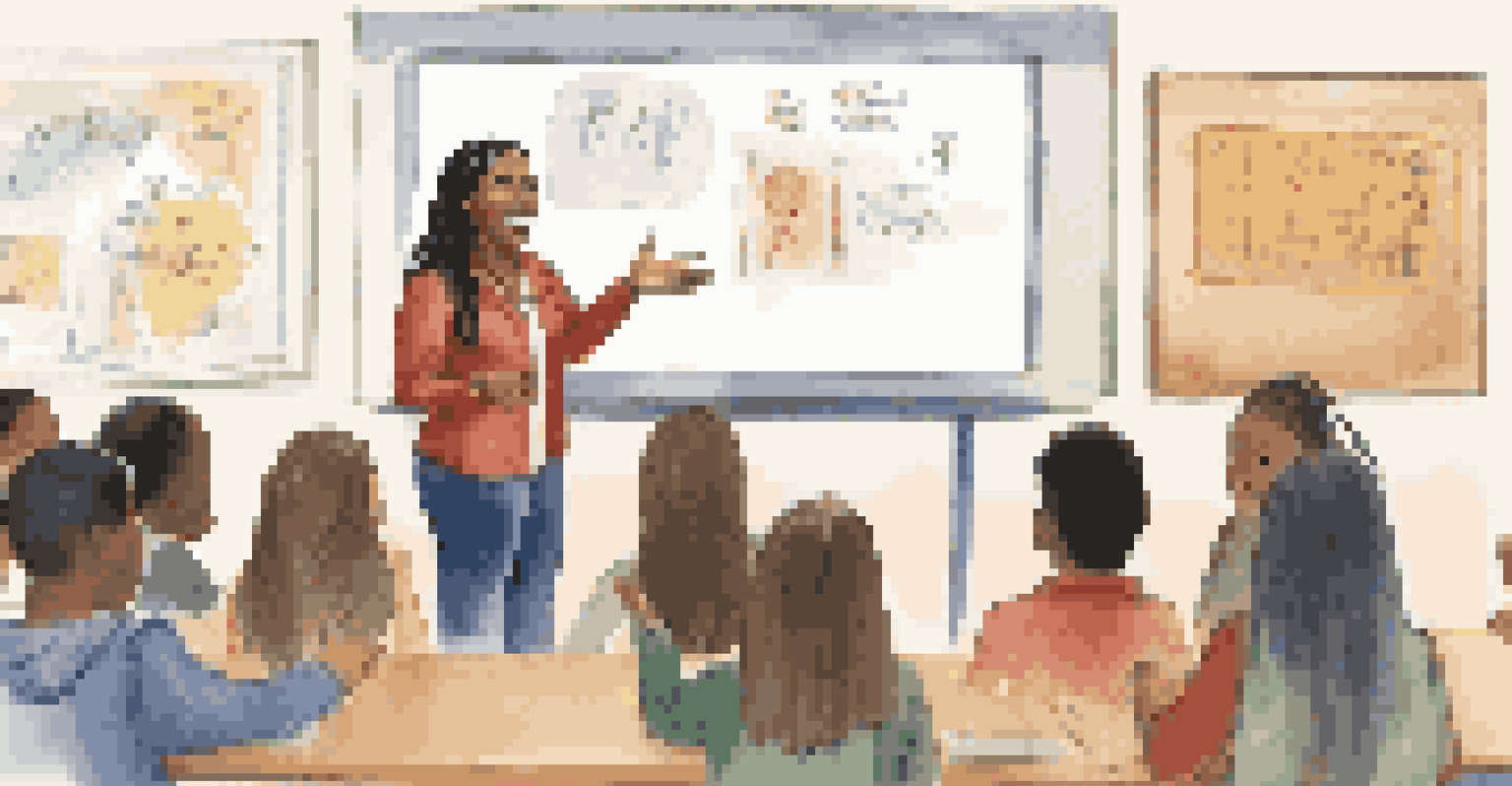The Importance of Cultural Intelligence in Education Settings

What is Cultural Intelligence and Why Does it Matter?
Cultural intelligence (CQ) is the ability to relate to and work effectively across cultures. In our increasingly globalized world, this skill is more vital than ever, especially within educational settings. It enables educators and students alike to navigate diverse environments and enhances learning experiences.
The highest result of education is tolerance.
Imagine a classroom where students from various backgrounds come together. Without CQ, misunderstandings may arise, leading to conflict or disengagement. However, with a high level of cultural intelligence, teachers can create an inclusive atmosphere that fosters collaboration and respect among all students.
Ultimately, cultural intelligence is not just an academic concept; it is a practical skill that can significantly impact a student's educational journey and future workplace interactions. By understanding CQ, educators can better prepare students for life in a multicultural world.
Benefits of Cultural Intelligence in Classrooms
Integrating cultural intelligence into classrooms offers numerous benefits. First and foremost, it enriches the learning environment, making lessons more relevant to students from diverse backgrounds. This relevance can lead to increased engagement and participation.

Moreover, when students learn to appreciate different cultures, they develop empathy and critical thinking skills. This helps them not just as students, but as global citizens who can navigate complex social landscapes. For instance, group projects that require collaboration among diverse peers can cultivate these essential skills.
Cultural Intelligence Enhances Learning
Cultural intelligence enriches classroom experiences by fostering inclusivity and engagement among students from diverse backgrounds.
Additionally, culturally intelligent educators can tailor their teaching strategies to cater to varied learning styles influenced by cultural backgrounds. This personalized approach not only enhances comprehension but also builds stronger connections between teachers and students.
Cultural Intelligence: A Tool for Conflict Resolution
In any educational setting, conflicts may arise due to cultural misunderstandings. Cultural intelligence serves as an essential tool for conflict resolution, allowing educators and students to address issues constructively. By understanding differing perspectives, individuals can find common ground.
Cultural intelligence is the ability to relate and work effectively across cultures.
For example, consider a scenario where a student's behavior is misinterpreted due to cultural norms. With CQ, a teacher can navigate these misunderstandings effectively, fostering dialogue and mutual respect. This proactive approach not only resolves conflicts but also strengthens relationships.
Furthermore, teaching students about cultural norms and values promotes a more harmonious classroom environment. By equipping them with the skills to handle conflicts, educators prepare students for future interactions in diverse workplaces and communities.
Enhancing Curriculum with Cultural Perspectives
Incorporating cultural intelligence into the curriculum can provide students with richer, more diverse content. By integrating global perspectives, educators can create lessons that reflect the world’s complexity and interconnectedness. This approach helps students appreciate and understand different viewpoints.
For instance, a history lesson that includes voices from various cultures offers a more nuanced understanding of events. This not only makes learning more engaging but also prepares students to think critically about the information they encounter.
CQ Aids in Conflict Resolution
Cultural intelligence serves as a vital tool for resolving misunderstandings and promoting respectful dialogue in educational settings.
Moreover, when students see themselves represented in the curriculum, their sense of belonging increases. This inclusion boosts self-esteem and motivates students to participate actively in their learning.
The Role of Educators in Promoting Cultural Intelligence
Educators play a crucial role in fostering cultural intelligence within their classrooms. By modeling culturally intelligent behaviors, teachers set the tone for inclusivity and respect. This leadership is vital in creating an environment where all students feel valued.
Professional development focused on cultural intelligence can equip educators with the necessary tools and strategies. Workshops and training can introduce effective practices that help teachers engage with diverse student populations more thoughtfully.
Additionally, educators can encourage open discussions about cultural differences. This practice not only normalizes conversations about diversity but also helps students learn from one another, creating a community of mutual respect and understanding.
Assessment and Cultural Intelligence: A New Approach
Assessing students in a culturally intelligent manner is crucial to fair evaluations. Traditional assessments may not accurately reflect the abilities of students from diverse backgrounds. By incorporating culturally relevant assessments, educators can better gauge students' understanding and skills.
For example, using project-based assessments allows students to express their knowledge in ways that resonate with their cultural experiences. This approach not only validates their perspectives but also encourages creativity and critical thinking.
Culturally Relevant Assessments Matter
Implementing culturally relevant assessments allows educators to evaluate students' understanding more fairly and meaningfully.
Moreover, involving students in the assessment process can lead to more meaningful evaluations. By allowing them to reflect on their learning in culturally relevant contexts, educators foster a deeper understanding of the material and its implications.
Future Directions: Building Culturally Intelligent Schools
As we move forward, building culturally intelligent schools will be essential for preparing students for a diverse world. This involves creating policies and practices that prioritize inclusivity and understanding across the entire school community. In doing so, we can foster environments where all students thrive.
Collaboration among educators, parents, and the community is vital in this effort. By working together, stakeholders can develop programs that promote cultural awareness and intelligence, ultimately enriching the educational experience for every student.

Lastly, ongoing evaluation and adaptation of cultural intelligence initiatives will ensure that schools remain responsive to the needs of their diverse populations. This commitment to growth will empower students to become culturally competent individuals ready to face the challenges of a global society.